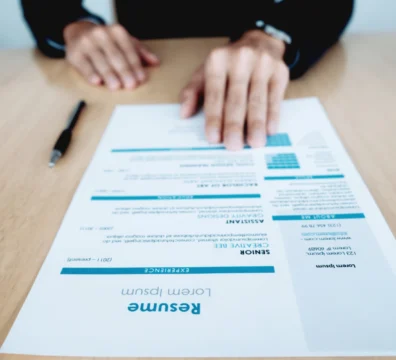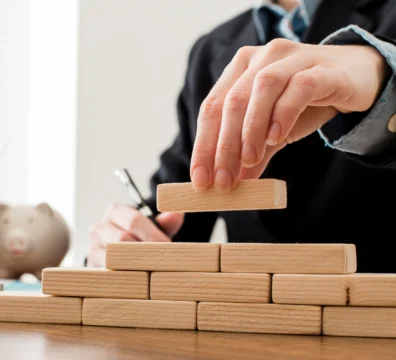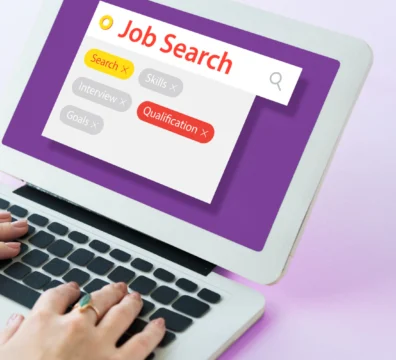Remember those days when your father joined the same organisation and then retired after 35 years? Well, that’s a thing of the past. Most individuals today do not want to limit themselves; they want to explore new avenues and improve their chances of professional success.
Are you feeling stuck in your career? Wishing you had a clear path to your dream job? Don’t worry, you’re not alone! Many people feel lost when it comes to career development planning. But the good news is, with a step-by-step approach, you can take control and start shaping your future!
This guide will walk you through the key stages of career development planning, helping you unlock your potential and achieve your career goals. So, grab a cuppa, get comfy, and let’s get started!
A Complete Career Development Planning Guide
Ready to take charge of your career? Whether searching for a new job, a promotion, or a complete career change, a solid plan is your key to success. Think of this guide as your personal roadmap to help you reach your career goals.
Let’s break down the seven steps to create your own personalised career development plan!
Self-Assessment
The first step in any good career development plan for employees is all about you! This might sound obvious, but taking the time for honest self-reflection is crucial. So, grab a pen and paper and let’s get started with your career development planning, especially if you are considering staff outsourcing solutions to enhance your workforce strategy.
Make a note of your strengths and weaknesses
What are you naturally good at? What skills do you enjoy using? Are there areas where you’d like to improve? Don’t be afraid to be honest with yourself- a strong self-assessment is the foundation for a successful career development plan.
Think about your values and interests too
What kind of work environment motivates you? What kind of work do you find most fulfilling? Understanding your values will help you identify career paths that align with who you are, not just what you think you “should” do.
Finally, consider your long-term goals
Where do you see yourself in 5 or 10 years? What kind of work do you want to be doing? These long-term goals will be your guiding light as you develop your career development plan.
By taking the time for a thorough self-assessment, you will gain valuable insights into your strengths, interests, and aspirations. This self-awareness is essential for meaningful and achievable career development planning that propels you forward in your chosen field!
Career Exploration and Research
Now that you have a better understanding of yourself through your self-assessment, it’s time to explore the exciting world of career possibilities! This is where your career development planning gets really fun.
Think broadly
Don’t limit yourself to jobs you’ve always known about. Research different industries, roles, and even companies you admire. There might be a perfect fit you haven’t even considered yet!
The internet is your best friend here
Use online resources, career websites, and professional networks like LinkedIn to learn more about different career paths. There’s a wealth of information available to help you discover exciting options that align with your skills, interests, and professional development goals.
Talk to People: A Key Step in Career Development Planning
Chat with friends, family, and colleagues who work in different fields. Ask them about their day-to-day tasks, what they enjoy (and dislike!) about their jobs, and the skills needed to succeed. Their insights can be invaluable in shaping your career exploration journey.
Remember, there’s no single “right” path in career development planning. This exploration stage is all about gathering information and keeping an open mind. The more you learn, the better equipped you’ll be to make informed decisions for your future and develop a targeted career development plan!
Goal Setting
With a better understanding of yourself and your options, it’s time to set some clear and achievable career development goals. Remember, strong goals are the roadmap for your career development plan! Here are some tips to get you started with this stage of your career development planning:
Be SMART
Make sure your goals are Specific, Measurable, Achievable, Relevant, and Time-bound. For example, instead of saying “I want to improve my public speaking skills,” a SMART goal might be “I will enrol in a public speaking course by (date) and give a presentation at a team meeting within 3 months.”
Short-term vs. Long-term
Set a mix of short-term and long-term goals. Short-term goals provide a sense of accomplishment and keep you motivated. Long-term goals keep your big picture in mind and give you direction.
Write it Down
Writing down your goals makes them more real and increases your chances of achieving them. Include them in your career development plan for easy reference.
By setting clear and achievable career development goals, you’ll have a specific target to work towards. This focus will keep you motivated and on track as you progress through your career development planning process!
Career development can be significantly enhanced by understanding the benefits of flexible working, which can lead to greater job satisfaction and improved work-life balance.
Action Plan Development
Now that you have your goals set, it’s time to translate them into actionable steps! This is where the rubber meets the road in a career development plan for employees.
Think about the specific actions you need to take to achieve each goal. For example, if a goal is to improve your computer programming skills, your action plan might include taking online courses, attending workshops, or working on personal coding projects.
Break down large goals into smaller, manageable steps. This will make them feel less overwhelming and help you stay motivated. Set deadlines for each step. Having deadlines creates a sense of urgency and keeps you on track.
Remember, your action plan is a living document. As you progress through your career development planning, you may need to adjust your action steps based on your experiences and learnings.
Skill Development
Now it’s time to focus on building the skills you need to achieve your career development goals. Continuous learning is essential to staying ahead in any field! Here are some ways to invest in your skill development:
- Online Courses: Many platforms offer quality online courses and employee development programmes on a wide range of subjects.
- Workshops and Seminars: Attend industry conferences or workshops hosted by professional organisations.
- Mentorship: Tap into the knowledge and experience of a mentor in your field.
- On-the-Job Training: If possible, seek opportunities to take on new responsibilities or projects within your current role.
Remember, skills aren’t just technical when it comes to career development planning! Soft skills like communication, problem-solving, and time management are equally important and often valued by employers. By continuously developing and updating your skill set, you’ll become a more valuable asset to any organisation and make significant strides in your career development plan.
Networking and Mentorship
Building strong connections can be incredibly beneficial for your career development plan. Here are some ways to leverage networking and mentorship:
- Professional Networking Events: Attend industry events, conferences, or meetups to connect with people in your field.
- Online Networking Platforms: Utilise professional networking sites like LinkedIn to connect with potential employers and mentors.
- Join Professional Organisations: Becoming a member of industry-specific organisations can open doors to new opportunities and provide valuable networking connections.
- Seek a Mentor: Find a mentor who can offer guidance, support, and career advice based on their experience.
Don’t be afraid to put yourself out there! Networking and mentorship can play a key role in helping you achieve your career development goals.
Regular Review and Adjustment
Think of your career development plan as a flexible guide, not a rigid rulebook. Life happens! Circumstances change, and you might discover new interests along the way. That’s why regular reviews and adjustments are so important.
Here’s how to stay adaptable:
- Schedule Check-Ins: Set reminders every few months (or more frequently if needed) to review your career development plan and track your progress.
- Celebrate Successes: It’s essential to acknowledge your milestones as you achieve in following your development goals for work. Positive reinforcement keeps you motivated.
- Be Flexible: If your goals or interests shift, it’s okay to modify your plan! The key is staying committed to your professional development.
Know that your career development planning is an ongoing journey! You’ll achieve a fulfilling and successful career by staying flexible, revisiting your goals, and celebrating your wins!
How 6 Pence Helps
Are you feeling overwhelmed by your career development planning? If you are looking for newer opportunities, then you have come to the right place.
6 Pence is one of the leading staffing and recruitment agencies in the GCC. We assist global and public sector companies in Dubai, Bahrain, Oman, and Iraq with hiring needs. Visit our careers page to submit your CV, and we can help you match with your best-fit employer.
Frequently Asked Questions
What is career development and example?
Career development is the ongoing process of managing your professional life. It’s more than just finding a job; it’s about setting goals, gaining new skills, and constantly striving for growth in your chosen field.
For example, someone interested in becoming a marketing manager might participate in leadership training, attend industry seminars, and seek out mentorship opportunities- all of which contribute to their career development.
What are the 5 stages of career planning?
While there are different models, the core stages of career development planning generally include:
- Self-Assessment
- Career Exploration
- Goal Setting
- Action Plan Development
- Skill Development
What is the career development process?
The career development process is cyclical rather than linear. It involves the stages mentioned previously, along with regular review, adjustment, and continuous learning. Think of career development planning as a lifelong journey with many exciting milestones along the way.




































































































